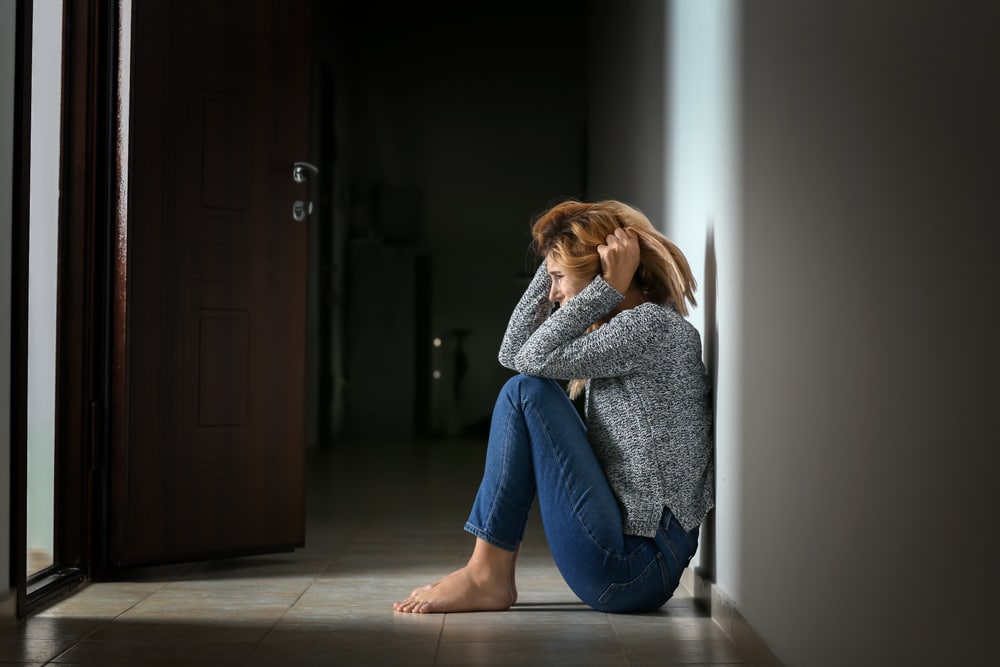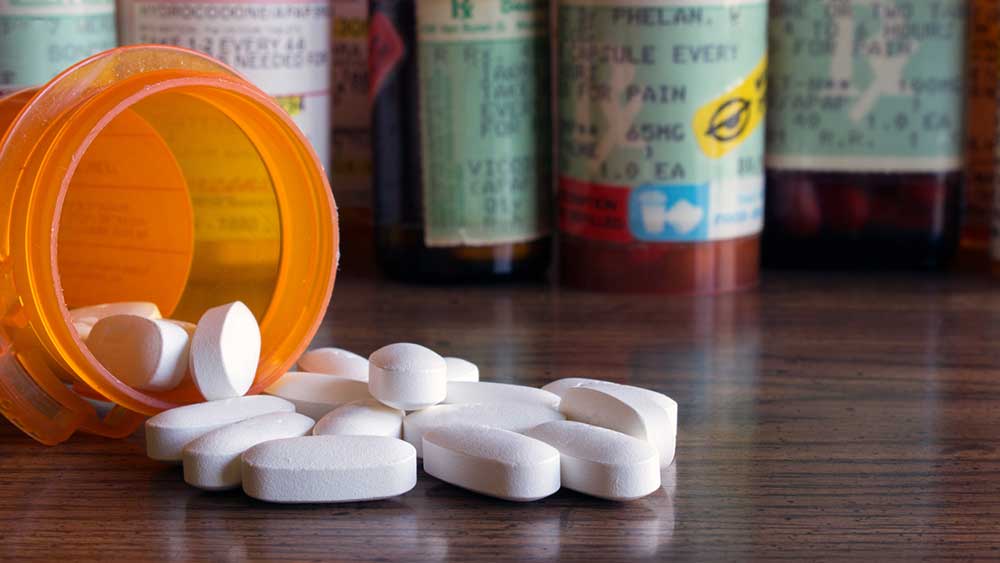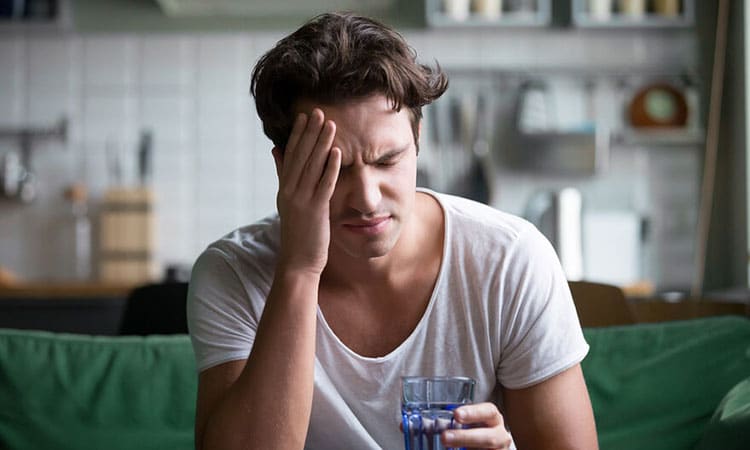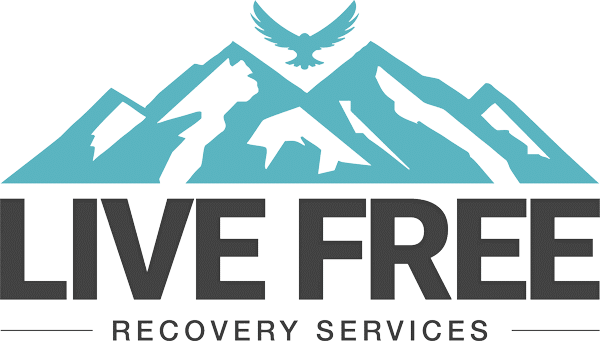Table of Contents
- Most Abused Prescription Drugs
- What’s the Difference Between Misuse, Abuse, and Addiction?
- Risk Factors for Prescription Drug Abuse
- Risk Factors for Older Adults
- What is Addiction and Physical Dependence?
- Signs of Prescription Drug Abuse and Addiction
- What Are Some Effects of Prescription Drug Abuse?
- Additional Consequences of Prescription Drug Abuse
- Effects That Abusing Prescription Drugs Can Have on Your Brain
- Some Causes of Prescription Drug Abuse
- Can You Overdose or Die if You Abuse Prescription Drugs?
- Reducing Your Risk
- Treating Prescription Drug Addiction
- Treatment Programs
- When to Get Professional Treatment
Most Abused Prescription Drugs
Prescription drugs are typically strong medications. That’s why you need a prescription to buy them. There are three types of abused prescription drugs. These are:
- Opioids – Opioids are used to relieve pain, including codeine, morphine, oxycodone, and tramadol.
- Depressants (Anti-anxiety and sedative medications) – These medications are used to ease anxiety or help a person sleep.
- Stimulants – Stimulants are used to treat attention-deficit hyperactivity disorder (ADHD).
Abused prescription drugs have become a big public health problem. Misuse and abuse of prescription drugs can lead to addiction and potentially overdose deaths.
What’s the Difference Between Misuse, Abuse, and Addiction?
Drug misuse, abuse, and addiction are all genuine public health problems that deal with the use of illegal drugs and the inappropriate use of legal drugs. People frequently use these terms interchangeably, but the treatment options for each issue are different, so it’s necessary to correctly identify a person’s drug problem.

The main difference between drug misuse and abuse is the intent. People who misuse drugs do so accidentally while treating a certain ailment. Those who abuse drugs do it intentionally to cause a certain feeling. Addiction is a severe form of drug abuse that has an effect on most, if not all, parts of a person’s life.
What’s Drug Misuse?
Drug misuse is typically associated with prescription drugs. This is because prescription drugs can cause negative side effects.
Since the early 1990s, doctors have prescribed a greater variety of opioid pain relievers, including codeine, hydrocodone, morphine (Astramorph, Avinza, Kadian, MS Contin, Oramorph SR), and oxycodone (OxyContin, Percocet, Vicodin). This is partly due to the aging of the American population and the fact that more people are suffering from chronic pain. However, these prescription medications are meant to be taken as directed by doctors. Misuse happens when these medications are taken for a purpose that doesn’t conform to legal or medical guidelines.
Examples of drug misuse include:
Taking another person’s prescription medication, even if it’s for a medical reason, such as to relieve pain. Instead, taking your own prescription medicine in a way other than the way it was prescribed is misused. For example:
- taking more than prescribed
- taking it more often than prescribed
- crushing pills to snort or inject them
- taking it for other reasons than for what it was prescribed
- using it at the wrong time
- Taking a prescription medication just to get “high.”
- Mixing the drug with alcohol or other drugs
What’s Drug Abuse?
Drug abuse happens when drugs are misused to get high or to cause self-harm. Drugs that are commonly abused include:
- alcohol
- illicit drugs
- prescription drugs
- any psychoactive substance
Drug abuse may continue and become compulsive, even when there are negative consequences.
Risk Factors for Prescription Drug Abuse
Abuse of prescription drugs usually begins in teens or young adults, but it can happen at any age. Risk factors for prescription drug abuse include:
- Present or past addictions to other substances, including tobacco and alcohol
- Some pre-existing psychiatric issues
- Family history of substance abuse problems
- Peer pressure or a social environment where there’s drug use
- Access to prescription drugs, like having prescription medications at home in the medicine cabinet
- Little knowledge about prescription drugs and their possible harm
Risk Factors for Older Adults
Prescription drug abuse is a growing problem in the older adult population. This is especially true when they combine drugs with alcohol. Taking multiple drugs for multiple health problems can put seniors at risk of misusing drugs and becoming addicted.

What is Addiction and Physical Dependence?
Since commonly abused prescription drugs activate the reward center of your brain, it’s possible to develop a physical dependence and addiction.
Physical Dependence
Physical dependence is also called tolerance, and it’s the body’s reaction to long-term use. Individuals who are physically dependent on a drug need higher or more frequent doses to get the same results. They also may experience withdrawal when they cut down on their use of the drug or suddenly stop. Withdrawal symptoms from these drugs can be severe and, in the case of certain medications, potentially life-threatening.
Addiction
Drug addiction is also known as a severe substance use disorder (SUD). People who are addicted to a drug also have a physical and/or psychological dependence on that drug. They also seek the drug compulsively and keep using it even when it causes significant problems in their lives. Addicts often:
- miss work or school
- endanger their families
- get into legal trouble
- can’t change their habits
Signs of Prescription Drug Abuse and Addiction
Signs of Opioid Drug Abuse
- Constipation
- Nausea
- Euphoria
- Slowed breathing
- Drowsiness
- Confusion
- Loss of coordination
- Increased dose needed for pain relief
- Increased sensitivity to pain with higher doses (hyperalgesia)
Signs of Depressants Drug Abuse
- Drowsiness
- Unsteady walking
- Confusion
- Slurred speech
- Loss of concentration
- Dizziness
- Memory problems
- Slowed breathing
Signs of Stimulant Drug Abuse
- Higher alertness
- Feeling high
- High blood pressure
- Irregular heartbeat
- Increased body temperature
- Reduced appetite
- Insomnia
- Anxiety
- Paranoia
Other General Signs Include:
- Forging, stealing, or selling prescriptions
- Taking larger doses than prescribed
- Extreme mood swings or hostility
- Having a “high,” unusually energetic, or sedated appearance
- Constantly “losing” prescriptions or requesting early refills
- Getting prescriptions from more than one doctor

What Are Some Effects of Prescription Drug Abuse?
There are numerous negative effects of prescription drug abuse. These effects can vary depending on the type of prescription drug that a person is using. Some negative effects of prescription drug abuse that are based on the type of prescription drug being abused are described below.
Effects of Abusing Opioids
Abusing opioids can cause low blood pressure and a slowed breathing rate. This has the potential for breathing to stop or a coma to occur. An opioid overdose has a high risk of death.
Effects of Abusing Anti-Anxiety Medications and Sedatives
These medications can cause memory problems, slowed breathing, and low blood pressure. Stopping the medication suddenly can cause withdrawal symptoms that can include seizures and nervous system hyperactivity.
Effects of Abusing Stimulants
Abuse of stimulants can cause:
- a dangerously high body temperature
- high blood pressure
- heart problems
- seizures or tremors
- hallucinations
- paranoia
- aggressiveness
Additional Consequences of Prescription Drug Abuse
Additional potential consequences of abusing prescription drugs include:
- Taking part in risky behaviors due to poor judgment
- Getting involved in crime
- Decrease in school or work performance
- Damaged relationships
- Car accidents
Effects That Abusing Prescription Drugs Can Have on Your Brain
Neurotransmitters in the brain, such as dopamine, send messages by attaching to receptors on
nearby cells. The actions of these transmitters and receptors cause the effects of prescription drug abuse. Each type of prescription drug works a little differently in the brain and can cause actions that are harmful to the body.
- Opioid pain medications. Opioids attach themselves to molecules on cells known as opioid receptors–the same ones that respond to heroin. These receptors are found on nerve cells in many areas of the brain and body, particularly the areas involved with pain and pleasure.
- Prescription stimulants. Ritalin, Adderall, and other stimulants have similar effects to cocaine when abused by causing the chemicals dopamine and norepinephrine to build up in the brain.
- Prescription depressants make you feel relaxed and calm, similar to club drugs GHB and Rohypnol, especially when abused.
Some Causes of Prescription Drug Abuse
Adults and teens abuse prescription drugs for many reasons, including:
- To feel good or get high
- To relieve tension and relax
- increase alertness or reduce appetite
- experiment with the effects of the drug
- To prevent withdrawal and maintain addiction
- Peer pressure
- To improve concentration and school or work performance
Can You Overdose or Die if You Abuse Prescription Drugs?
You can. More than half of the drug overdose deaths in the U.S. each year are caused by prescription drug misuse. Deaths each year from abuse of pain relievers, Benzodiazepines such as Oxycodone, Valium, Xanax, and antidepressants steadily increased throughout the 1990s. It then peaked in 2017, decreased in 2018 and 2019, and rose again in 2020.
Increases in deaths due to prescription drug abuse were connected to a rise in the misuse of prescription opioid pain relievers and the presence of fentanyl (a powerful opioid) in the drug supply. In fact, in 2013, only 9% of deaths from prescription drugs involved fentanyl.
By 2019, more than 46% of deaths from prescription drugs involved fentanyl. However, amongst people aged 15 – 24, prescription drug abuse rates have remained fairly steady over the last decade.
Mixing different types of prescription drugs can be especially dangerous. For example, opioids interact with benzodiazepines and increase the risk of overdose. Combining opioids with alcohol can worsen breathing problems and lead to death. Misusing prescription drugs can also harm your physical health, so if you’ve noticed a decline in your well-being.
Reducing Your Risk
If you’re taking commonly abused prescription drugs, here are some ways to reduce your risk of developing an addiction.
- Make sure you’re getting the correct medication. Be sure that your doctor clearly understands your condition. Talk about all your prescriptions, including over-the-counter medicines, herbs, supplements, alcohol, and other drug use.
- Check with your doctor. Talk to your doctor regularly to make sure the medication that you’re using is working, and you’re taking the right dose.
- Follow the instructions carefully. Be sure to use your medication the way it was prescribed.
- Learn what your medication does. Ask your healthcare provider or pharmacist about the medication’s effects so you’ll know what to expect.
- Never use someone else’s prescription. Everyone is different.
- Don’t buy prescriptions online unless it’s from a trustworthy pharmacy. Some websites sell counterfeit prescription drugs that may be dangerous.
Treating Prescription Drug Addiction
Options for treating prescription drug abuse vary depending on the type of drug used and your individual needs. Psychotherapy or counseling is usually the main component of prescription drug addiction treatment. Medically supervised withdrawal due to detoxification (detoxification) might also be required, as well as withdrawal medication, recovery support groups, and aftercare.
Detox
Depending on the drug and how often it’s used, detox might be needed as part of a prescription drug addiction treatment plan. Withdrawal from prescription drugs can be dangerous and should be done with medical monitoring.
Opioid Withdrawal
Opioid tapering means slowly decreasing the dose of opioids you take until it’s not used anymore. Medications such as clonidine can help manage opioid painkiller withdrawal symptoms. Buprenorphine, Suboxone, or methadone might be used under specific legally regulated conditions to ease symptoms of withdrawal.
Depressant Withdrawal
If you’ve used sedatives or anti-anxiety drugs for a long time, it might take weeks to slowly taper off from them. You may also need other medications to stabilize your mood, manage the final days of tapering, or help with anxiety. You need to work closely with medical supervision.
Stimulant Withdrawal
Unfortunately, there aren’t any FDA-approved drugs for treating stimulant withdrawal. Typically, treatment centers focus on tapering and relieving withdrawal symptoms like sleep problems, tiredness, and depression.
Psychotherapy (Counseling)
A licensed drug and alcohol counselor or addiction specialist can provide group therapy, individual, and family counseling. In addition, therapists can provide you with different behavioral therapies which have been shown to be highly effective in treating SUD.
These treatment methods can help you:
- Find out what factors might have led to prescription drug abuse. There might be co-occurring mental health conditions (this is called a dual diagnosis) or relationship problems.
- Learn the necessary skills to resist cravings, avoid abuse of drugs, and help prevent a relapse of prescription drug problems.
- Learn strategies for fostering positive relationships
- Recognize ways to become involved in healthy activities (not related to drugs).
- Learn the steps to take in case a relapse occurs
Treatment Programs
Of course, the length and type of treatment program depend on your needs and requirements. Treatment facilities frequently offer several levels of care, including:
- Residential or Inpatient Treatment
- Outpatient Levels
- Partial Hospitalization Program (PHP)
- Intensive Outpatient Treatment Program (IOP)
- Regular Outpatient Program (OP)
- Sober Living Residence
When to Get Professional Treatment
Talk to your healthcare provider if you think you’ve abused prescription drugs and now suffer from dependency or addiction. Don’t be embarrassed to talk about it. Medical professionals are trained to help you, not judge you. And it’s easier to tackle a problem early on before it becomes an addiction and causes more serious problems.
If you, your family member, or your loved one has developed a problem with prescription drug abuse or addiction, there is a prescription drug addiction treatment program for you here in Manchester, NH. Live Free Recovery Services in Manchester, NH, can provide you with a comprehensive program designed specifically for your issues. Our staff is compassionate, experienced, professionally trained, and dedicated to helping people just like you. Contact us today and live your life free of addiction.
References
https://dictionary.cambridge.org/us/dictionary/english/prescription-drug
Published on: 2022-02-10
Updated on: 2024-02-16
